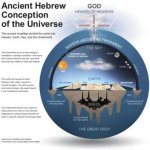Re: To Believe or Not To Believe
Whoaaaaaa.... wait up... then which model is the correct one?
You are aware there are different branches of science? And they require different approaches. You can’t have one model that works for astronomy, economics, chemistry, cultural anthropology, microbiology, etc.
I think here you are trying to come up with a theory [explanatory argument]??
Not answer, but a possible falsification of the theory from above.
No, an answer. You can’t start with an explanation, you have to start with something to explain: a question. Usually it will be “Why does X occur?” Or “what would be the result if X were to occur?” Or “what is the relationship between X and Y?”
Then, based on reasoning, logic, and pre-existing theories, you form a hypothesis: a suspected answer to your question.
Not by making predictions, but by attempting to find conflicting evidence.
Yes by making predictions. If you can conduct an experiment, you do, and you predict what will happen if your hypothesis is correct. You also form a null hypothesis; the conditions under which your hypothesis would be wrong. If your science is only observational, you make predictions on what you expect to find or see happpen.
True (knowing that you mean theory instead of hypothesis), which is why supporting evidence isn't used in science.
I meant hypothesis and supporting evidence is used. Your hypothesis is that Y will happen as a result of X. You test it by introducing X, and then Y occurs. You can reject the null hypothesis.
Here’s the important part: While the success of the experiment supports the idea that X causes Y, it doesn’t prove it. There could be some factor or relationship we missed or haven’t thought of. But after continuing testing, isolating as many variables as possible, we can say that the evidence supports our hypothesis. Then we can form a fuller explanation as a theory, often combining different hypotheses.
Here, you are blending science and religion. You would be able to, under this "method" of science, "hypothesize" that Christianity is both supported AND rejected by science
How? I’m really not sure what you’re trying to say. Religion plays no part in the method, and I fon’t Know how you’re reaching a paradox. Please give an example or walk-through.
Science doesn't "predict"... It attempts to falsify theories [explanatory arguments].
Of course it makes predictions. And if the predictions fail, we know our ideas were wrong. That’s what falsification means: A thing that can occur(or fail to occur) that shows the hypothesis or theory wrong.
Define "strong support"... Right now it is a buzzword... You already had the theory from the start; here, you were trying to falsify your theory, and if it didn't get falsified, then it became a theory of science (and remained one so long as it continued surviving null hypothesis testing)
strong support is passing rigorous tests and making correct predictions and showing explanatory power.
Not how laws are formed. Laws DO come from theories. A law is simply a formalized theory. That formalization is usually by way of mathematics.
No, a law is an expressed relationship, not a theory. Newton’s 2nd Law of Motion: F = ma That’s not an explanation of anything and doesn’t tell us the “Why,”
Science starts with a theory.
No, science starts with a question. How can you have an explanation for something not asked about?

